Best Practices for Selling Your Private Label Amazon FBA Business
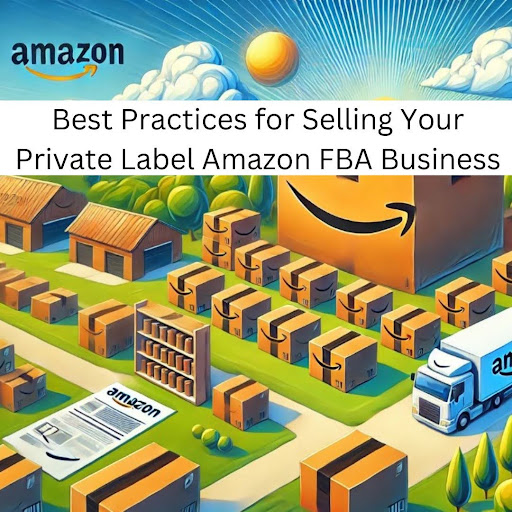
Introduction to Selling an Amazon FBA Private Label Business
Selling a private label Amazon FBA business is a significant decision that requires careful planning and understanding of the key factors involved. Private label sellers often build successful brands that resonate with consumers, but eventually, many want to capitalize on their efforts through a profitable exit strategy. Whether you are looking to fund a new venture, step back from e-commerce, or simply cash out on your business's growth, understanding how to best prepare and present your Amazon FBA business for sale is crucial.
This guide will cover everything you need to know, from preparing your business to finding the right marketplace or buyer, and even understanding the valuation process to ensure you get the best deal possible.
Key Factors to Consider Before Selling
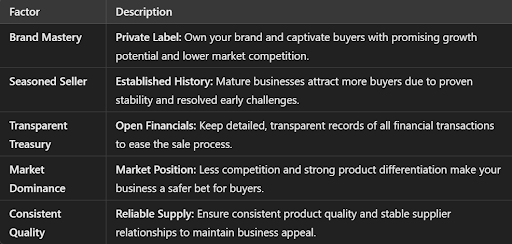
Before putting your Amazon FBA business up for sale, there are several factors you need to evaluate to increase your chances of a successful sale:
-
Business Type: The nature of your business, whether it is a private label or reselling brand-name products, significantly affects the attractiveness to buyers. Private label businesses, where you own and control the brand, are often more appealing as they offer greater growth potential and lower competition.
-
Age of the Business: Buyers are more likely to invest in businesses with established sales histories. A mature business that has overcome the growing pains of early stages and has steady financial records is typically more attractive to buyers.
-
Financial Transparency: Maintaining up-to-date and detailed financial records is key. Buyers need transparency regarding sales, expenses, profits, and any costs related to production and fulfillment. Good bookkeeping helps prospective buyers evaluate the business’s profitability and reduces the risk of complications during the sale process.
-
Market Share & Competition: It is important to assess the level of market competition your business is facing. A private label brand that has carved out a niche and developed brand loyalty will be perceived as less risky compared to one in a saturated market. Highlighting strong product differentiation and good customer reviews will add to your business’s value.
-
Product and Supplier Stability: Consistent product quality and reliable suppliers are key to an attractive business sale. Prospective buyers will look closely at supplier relationships and the stability of your product offerings.
Preparing Your Amazon FBA Business for Sale
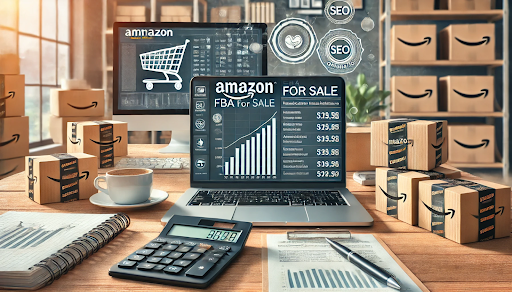
To get the best possible outcome from selling your Amazon FBA business, preparation is key. Follow these steps to ensure your business is ready for sale:
-
Organize Financial Documents: Have a clear record of all income and expenses, including revenue, cost of goods sold, Amazon fees, advertising expenses, and more. These records are essential to valuing your business and establishing credibility with buyers.
-
Ensure Compliance: Confirm that your products and listings comply with Amazon's rules and regulations. Non-compliance can lead to account suspensions, which can scare off potential buyers.
-
Audit Your Business: Evaluate your business operations and identify areas of improvement. Update product listings, optimize SEO, and address negative reviews to ensure your business is in its best possible condition.
-
Secure Supplier Relationships: Maintain strong relationships with suppliers and confirm that all agreements are documented. Consistent product quality and reliable fulfillment are crucial aspects that prospective buyers will assess.
-
Strengthen Brand Identity: Work on building brand value by enhancing packaging, website presence, social media engagement, and customer loyalty. A strong brand identity can add significant value to your business.
Valuing Your Private Label Business
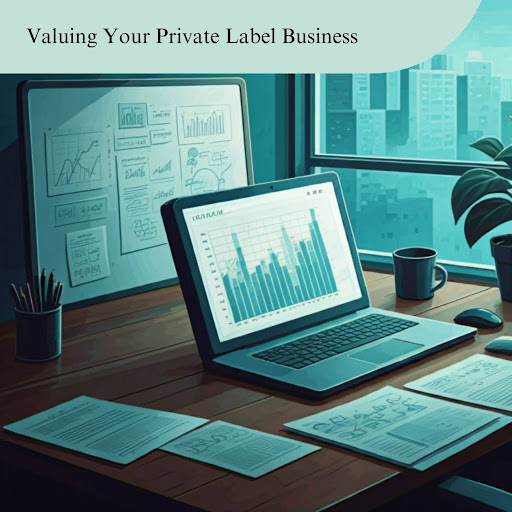
Understanding how to value your Amazon FBA business is one of the most critical steps in the selling process. Valuation typically depends on multiple factors including:
-
SDE (Seller’s Discretionary Earnings): This represents the total earnings available to an owner-operator. The valuation is often a multiple of the SDE, generally ranging from 2-4 times the annual SDE depending on the business's scale, profitability, and market conditions.
-
Growth Potential: Buyers will assess the scalability of your product catalog. Products with consistent performance, good reviews, and opportunities for expansion are seen as more valuable.
-
Market Trends: Businesses positioned in a growing niche will command a higher value. Research the market trends in your category and highlight potential growth areas.
-
Operational Simplicity: A business with streamlined operations, including automated processes and minimal owner involvement, is often valued higher because it reduces the perceived risk for the buyer.
When is the Right Time to Sell?
Timing is everything when selling an Amazon FBA business. Ideally, you want to sell when your business is on an upward growth trajectory, showing increased profits, stable operations, and potential for further scalability. Avoid selling during a downturn unless you have a compelling reason, as buyers prefer businesses that demonstrate consistent or growing profitability.
Consider your long-term goals. Whether you’re looking to exit to fund a new project, reduce your workload, or realize the financial value of your business, understanding the market and your own readiness is crucial.
Where to Sell Your Amazon FBA Business
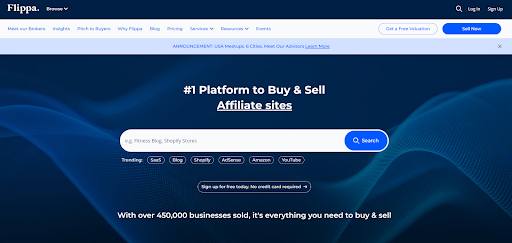
There are several options available for selling your Amazon FBA business, and the best choice depends on your preferences and circumstances:
-
Marketplaces and Brokers: Platforms like Empire Flippers, Flippa, and FE International offer a marketplace for buyers and sellers to connect. Using a broker can help you reach a wider audience and get a fair market value for your business.
-
Aggregators: Companies like Thrasio and other FBA aggregators specialize in buying successful Amazon brands. These buyers are often well-funded and looking to expand their portfolio of FBA businesses. They offer a quick and efficient process, though you may not achieve the highest price compared to a competitive marketplace.
-
Private Sale: You could also choose to conduct a private sale, possibly to a fellow Amazon seller or someone within your network. This option may save on brokerage fees, but it requires more effort in finding the right buyer and handling negotiations.
Conclusion
Selling a private label Amazon FBA business can be a rewarding endeavor when approached with careful planning and strategy. By understanding the factors that drive valuation, preparing your business to meet buyer expectations, and choosing the right time and place to sell, you can maximize the value of your business and achieve a successful exit. Whether through a marketplace, aggregator, or private sale, the key lies in showcasing your business's strengths and its growth potential to prospective buyers.
If you need personalized guidance or help fine-tuning your strategies, Superfuel AI can assist. Our AI-powered assistant analyzes 36+ key Amazon metrics to identify and address the root causes of sales fluctuations, helping you optimize your storefront and boost sales. Reach out to us at support@superfuel.io.
--
Ben Mathew, Amazon Expert
Ben Mathew is a co-founder at Superfuel, a sales assistant for Amazon sellers. In the past, Ben and his team of e-commerce specialists and software engineers have launched 40+ new brands on Amazon, taking them from zero to bestsellers. In his free time, he is either learning from other top sellers or encouraging his 3 daughters in their love for reading. He is reachable at ben [at] superfuel.io.
FAQ
1. How do I determine the value of my Amazon FBA business?
The value of your Amazon FBA business is typically based on a multiple of SDE (Seller’s Discretionary Earnings). The exact multiple depends on factors like growth potential, market conditions, brand strength, and operational efficiency.
2. How long does it take to sell an Amazon FBA business?
The timeline can vary depending on factors like business size, valuation, and the sales channel. On average, it could take anywhere from 3 to 12 months to find the right buyer and complete the sale process.
3. What documents are required to sell my Amazon FBA business?
Essential documents include financial statements, supplier contracts, tax returns, sales reports, and legal agreements. Properly organized documentation makes the selling process smoother and instills confidence in potential buyers.
4. What is the best way to find buyers for my Amazon FBA business?
Using marketplaces like Empire Flippers or brokers specializing in Amazon businesses is often the most effective way. Aggregators and private networks are also good options, depending on the specifics of your business.
5. Should I hire a broker to sell my Amazon FBA business?
Hiring a broker can simplify the process, especially if you’re not experienced in selling businesses. Brokers help with valuation, marketing your business, and negotiations, though they do charge a commission for their services.
6. When is the best time to sell my private label Amazon business?
The best time to sell is when your business is showing steady growth and profitability. Selling when your business has consistent revenue and potential for expansion can attract more buyers and a better sale price.